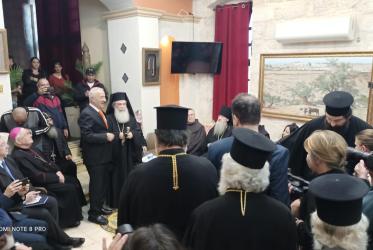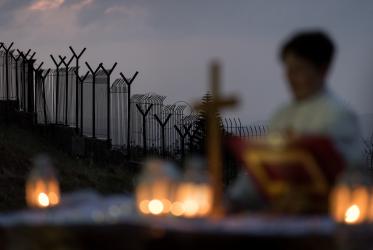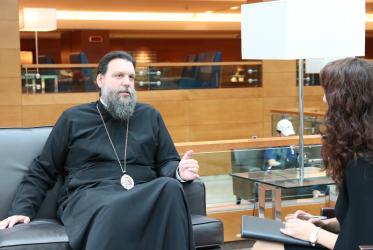Displaying 1 - 20 of 40
Education has a crucial role for sustainable peace in Iraq
18 December 2020
Reflection explores humanity, equality in God’s creation
16 September 2019
World Week for Peace highlights humanity and equality
15 September 2019
La Semana Mundial por la Paz destaca la humanidad y la igualdad
15 September 2019
Dr Saïd Ailabouni: God is on the side of rejected, oppressed, occupied
12 September 2019
Human fraternity is a divine calling, says WCC general secretary
03 February 2019
How can you help refugees?
11 October 2018






